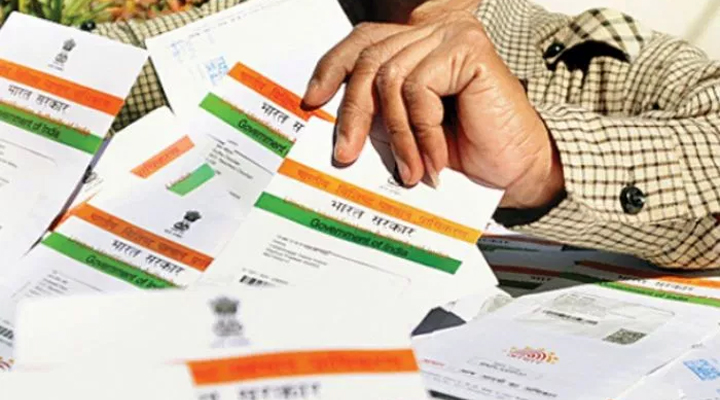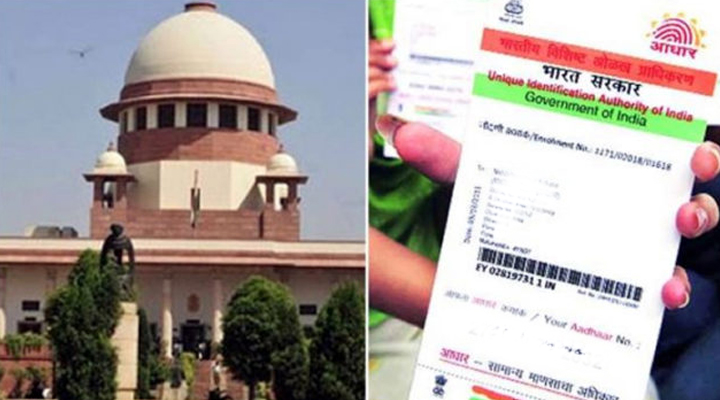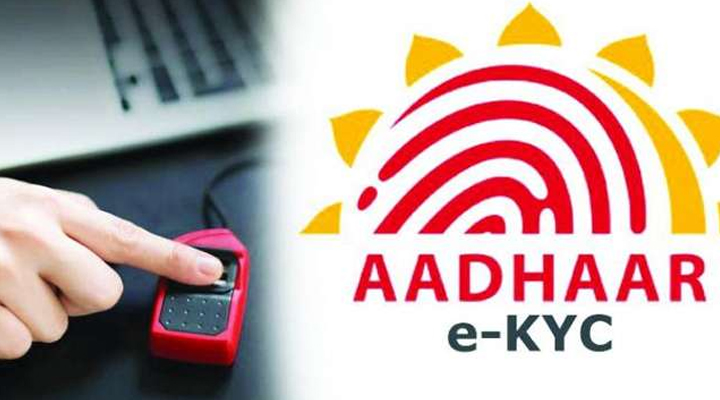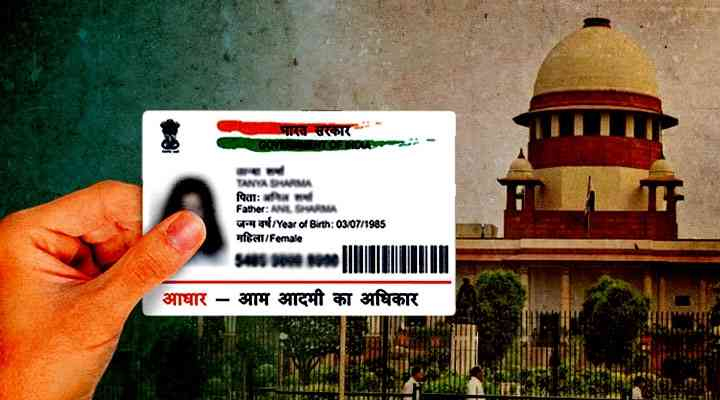In a four to one extensively held judgment on Aadhaar, the Supreme Court gave its verdict on September 26, 2018. It gave a go-ahead nod to the use of Aadhaar for access to welfare schemes. However, it has knocked down efforts to make it obligatory for bank accounts, mobile phone connections, and school admissions. According to the pronouncement of the Apex Court, Aadhaar card affords those on the boundaries of society, which far overshadows its flaws, safeguarding the validity of the colossal national identity scheme. However, it set aside moralities on how biometric data collected from more than one billion citizens can be used. The verdict is very lengthy and accounted for a 1,448-page report. The bench observed that Aadhaar means unique and it is better to be unique than being the best. According to the bench, uniqueness is the vital difference between Aadhaar and other identity proofs. Aadhaar cannot be duplicated and it is a unique identification.
The bench observed that Aadhaar means unique and it is better to be unique than being the best. According to the bench, uniqueness is the vital difference between Aadhaar and other identity proofs. Aadhaar cannot be duplicated and it is a unique identification.
In my opinion, the major engaging issues from the verdict are at par with what has been expected by the mainstream of the populace. The first and foremost concern is — no private company can mandate Aadhaar data associated with an individual’s biometrics and iris scans for access to their services. Chief Justice Dipak Misra, who headed the bench, held that Aadhaar would be voluntary, with an option to withdrawal.
However, the court mandated that the twelve digit Aadhaar number has to be linked to an individual’s Permanent Account Number (PAN) info for the sake of filing of tax returns. Indeed, the linking of PAN with Aadhaar has almost been done, as far as the taxpayers are concerned — it has eased the process of authentication of tax returns. The court made the decree that Aadhaar is not essential for school admissions, for the Central Board of Secondary Education (CBSE), the University Grants Commission (UGC), and medical entrance test NEET. The verdict pronounced that no child shall be deprived of assistance for the want of Aadhaar.
The court made the decree that Aadhaar is not essential for school admissions, for the Central Board of Secondary Education (CBSE), the University Grants Commission (UGC), and medical entrance test NEET. The verdict pronounced that no child shall be deprived of assistance for the want of Aadhaar.
As far as the safekeeping of biometric information is concerned, the apex court held that negligible demographic and biometric data of citizens are collected by UIDAI for Aadhaar enrolment and the system is serving much bigger public interest. According to the bench, there are sufficient means to safeguard and protect data collected under the Aadhaar scheme.
In this historic judgment, the apex court harangued that for the exclusion of a trifling three percent, ninety-seven percent cannot be denied the benefits of Aadhaar. In this milieu, the court said, “One can’t throw the baby out with the bathwater”. Another important point from the judgment is — no person should be starved of benefits under the social welfare scheme for the reason that their Aadhaar card cannot be authenticated. Nevertheless, the court also engaged the government to not give Aadhaar to illegal settlers.
Another important point from the judgment is — no person should be starved of benefits under the social welfare scheme for the reason that their Aadhaar card cannot be authenticated. Nevertheless, the court also engaged the government to not give Aadhaar to illegal settlers.
While passing verdict on the twenty-seven petitions that had challenged the merits of Aadhaar, the court said that it did not find no matter what in Aadhaar Act which violates the right to privacy of an individual citizen.
One of the major issues addressed in the Justice DY Chandrachud’s dissenting judgment held that Aadhaar is not constitutional and passing the Aadhaar law as a money bill, thus sidestepping the Rajya Sabha, was a fraud on the Constitution.
Going back to the scheme history of Aadhaar, the scheme was rolled out under the preceding Congress-led government in 2010. It began as a system to provide access to welfare schemes efficiently but soon evolved into a mandatory identity for access to services like bank accounts, PAN cards, cellphone services, passport and even driving licenses. In the year 2017, the government went to the Supreme Court to contend that Indians did not have a fundamental right to privacy, in a case linked to the biometric database. Of course, the case was lost by the government. In this case, the court ruled that the right to privacy was an inherent part of life and personal liberty, which is guaranteed by Article 21 of the Constitution of the Republic of India.
In the year 2017, the government went to the Supreme Court to contend that Indians did not have a fundamental right to privacy, in a case linked to the biometric database. Of course, the case was lost by the government. In this case, the court ruled that the right to privacy was an inherent part of life and personal liberty, which is guaranteed by Article 21 of the Constitution of the Republic of India.
It is worth mentioning here that the Aadhaar case is the second longest case with hearings over thirty-eight days. The union government defended Aadhaar on several grounds. For example, the leading issue being that it guaranteed proper delivery of benefits to millions and disallowed ‘draining off’ of treasuries. It can be astutely held that the lengthy Aadhar Verdict is par excellence the citizens’ prospects!
-Dr. Suman Kumar Kasturi












